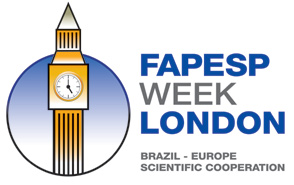Focus on international cooperation
FAPESP directors meet with officials from 14 European research councils
By Carlos Eduardo Lins da Silva, in London
Agência FAPESP – FAPESP President Celso Lafer, Vice-President Eduardo Krieger, and Scientific Director Carlos Henrique de Brito Cruz took part in a meeting Thursday (9/26) in London with directors of 14 European research councils, where they discussed issues of science policy and ways to improve international research cooperation.
Several participants at the meeting expressed the opinion that this type of cooperation is more effective when it is conducted by entities who share similar values and procedures and who have the flexibility to match specific needs.
Several also saw, as a positive, the fact that FAPESP envisions its international relations at the level of joint research projects as a full partnership in terms of design, execution and evaluation.
This type of cooperative work leads to a more effective degree of collaboration and acts as a catalyst for other activities such as researcher exchanges and the organization of events.
Lafer, Krieger and Brito Cruz responded to several questions posed by European agency directors regarding the characteristics of the system of science São Paulo and in Brazil.
Most of the agencies present at the meeting have already signed agreements with FAPESP, a fact that also provided the opportunity to evaluate what has been done up to now and discuss prospects for what may be done in the future. In addition to several British councils, in attendance were also representatives from agencies in Italy, Denmark, the Netherlands and Ireland.
FAPESP Week London Panel
The meeting was held in parallel to FAPESP Week London, which devoted yesterday’s morning session to the topic of international scientific collaboration, in a panel chaired by FAPESP Vice-President Eduardo Krieger.
The first speaker was Kerry-Anne Hoad of the British Council, who highlighted the fact that 40% of the scientists currently working in the United Kingdom are not of British nationality. In her opinion, this information is one of the reasons behind the dynamic nature of scientific activity in the UK .
Martyn Poliakoff, vice-president of the Royal Society, host of the event, emphasized the increasing importance of internationalization for global scientific development. He said that 35% of the world’s scientific production is currently written by scientists from more than one country.
Peter Olesen, from the Danish Council for Strategic Research, which has an agreement with FAPESP in the field of agriculture, described the concept of “strategic research” as the underlying theme of his agency, and according to which all studies are guided by real world problems that reflect the strategic interest of Denmark rather than the traditional division among branches of science.
Brito Cruz, scientific director of FAPESP, who concluded the panel, gave a presentation about the Foundation’s international cooperative programs and stressed their importance to the Foundation’s strategy. “When scientists from various countries interact, they have more and better ideas,” he said.









